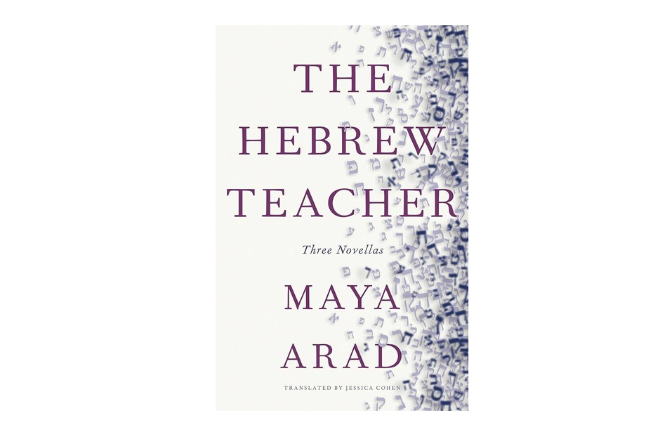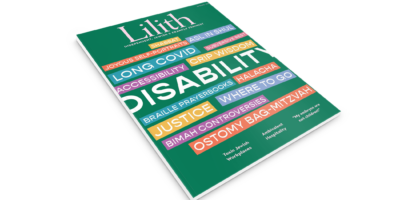
The Painful Business of Family Living
The Hebrew Teacher, by Maya Arad, lovingly translated from Hebrew by Jessica Cohen, consists of three novellas which flow naturally one to the other. Each addresses immigration between Israel and America; the particular lives of mothers and other women; what work means in women’s lives; and the ordinary, sometimes painful business of family living and caretaking.
The Hebrew Teacher, set on a college campus in California, is the first of the trio. We meet an aging and devoted teacher, Ilana, who begins by writing, “It wasn’t a very good time for Hebrew.” Eerily prescient about her impending slide downhill at the school, Ilana is anxious about dwindling enrollment numbers in her classes, while recalling her generosity to both her students and the school.
This situation is moving because Ilana takes joy in her work. She embraces her students, invites them home. She also wor- ries about her husband’s recent retirement (Will he have enough to do? Where is he now?) and tries without success to befriend the new faculty star, a driven and contemptuous young man named Yoad. With his arrival, politics comes to campus.
Yoad causes Ilana to be defensive about her love of Israel. (This book was published in Hebrew in 2018.) “Israel was a tough sell these days,” Ilana thinks. “It wasn’t the fledgling little country of forty-five years ago.” Even as she has lived her adult life in America, Ilana cannot quell her longing for her country of birth. Her words stand in for the pining of a generation—“Who will remember the red-hot color of the loamy earth, the downy soft- ness of the acacia flowers in spring…Who will remember foods long gone from the world: wide egg noodles with cream cheese, sugar, and cinnamon; frozen cod, battered and fried; chocolate spread that Mom used to make out of margarine and some carefully rationed sugar and cocoa?” Passages like these had me tearing up. Their ability to conjure an entire world in a few sentences demonstrates both the author and the translator’s gift for language.
The second novella, A Visit (Scenes), is written as described, in a series of short scenes told from three points of view: Miriam, a grandmother visiting California from Israel, her son Yoram, and her daughter-in-law Maya. This is the first time Miriam has met her toddler grandson Yonatan. In a series of interactions that range from squirm-inducing to heartrending, these three characters cannot connect, their physical proximity exaggerating their psychic distance.
Rifts caused by cultural and familial tension entangle with those caused by the generation gap. Maya is on pins and needles with her mother-in-law, yet fears her leaving because of what her absence will expose in Maya and Yoram’s marriage. Yoram uses the vice of work to escape the stress at home, while Miriam moves between judgmental, baffled, and sad. She has become a grandmother “too late,” her son married “too late.” Why does this young family eat takeout? Miriam can’t understand why mothers don’t raise their own children in this strange country called America, and fails to get close to her only grandson.
Make New Friends, the third novella, is also gut-wrenching. Israeli-born parents, Efrat and Yotam, fret over their teenaged daughter Libby’s inability to make friends, which her mother attributes to weight gain. Mother Efrat is the center of the story as she tries to force her daughter into popularity. Her efforts expose the ugly—and, to her, unrecognizable—mean-girl underside of Libby’s schoolmates and make everything worse. Efrat refuses to get Libby a smartphone, even though Yotam thinks it would help their daughter adapt. Libby, a typical angsty teen, vacillates between being too dependent and shunning her mother. Efrat vows not to spoil Libby, while at the same time buying her everything she wants (except a phone).
Buying things, as every parent knows, will not cure these conflicts.
This trio of novellas make for a poignant read. We can recognize ourselves, whether or not we are immigrants. In the best sense, the feeling after finishing this book is one of incompleteness. The author has held us in her sway, but the stories do not resolve because they cannot. She creates situations that are too lifelike. They uncover emotions that do not lend themselves to simple closure. Therein lies their craft and magic.
Martha Anne Toll is a book critic and novelist. Her debut novel is Three Muses.




